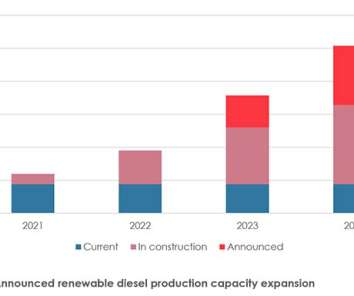ICCT report finds expected surge in renewable diesel production could have damaging environmental impacts due to feedstock demand
Green Car Congress
JANUARY 19, 2022
The International Council on Clean Transportation (ICCT) has released a report prepared by the consultancy Cerulogy that explores the potential market and environmental impacts of increased capacity for renewable diesel produced by hydrotreating oils and fats in the US. —from the report, “Animal, vegetable or mineral (oil)?”.























Let's personalize your content